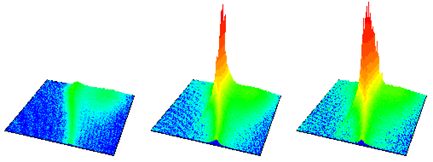Rechercher
Accueil > La Recherche > Axes & Equipes > Physique de l’Exciton, du Photon & du Spin > Optique des états collectifs et des spins (OECS) > Etats collectifs dans les semiconducteurs > Physics of microcavities : spin dynamics, polariton condensates and lasers
Physics of microcavities : spin dynamics, polariton condensates and lasers


The control of the coupling between photons and excitons is an expanding research domain standing at the frontier between many fields of condensed matter physics : nano-technologies, theory of electromagnetism and quantum optics, nonlinear optics.
Our research is focused on the fundamental features and the applied prospects related to polariton microcavities and polariton waveguides, from spin-dependent polariton interactions to polariton lasers, polariton condensates and polariton devices.
Collaborations

Join us
The teams offer many opportunities for internship, at all level and duration. They also offer PhD or postdoctoral positions. These offers include :
– Internship/PhD (Master, 2nd year, or PhD, possible funding) : Polariton condensates in polariton waveguides : quantum fluids of light for integrated photonics
Polariton condensates in GaN and ZnO microcavities
Polariton condensates in microcavities form a model system for the realization and control of collective quantum states, inspired from atomic condensates. GaN and ZnO are semiconducting materials (…)
n-GaAs microcavity as a tool non-perturbing nuclear spin detection
We report on the nondestructive measurement of nuclear magnetization in n-GaAs via cavity enhanced Faraday rotation. In contrast with the existing optical methods, this detection scheme does not (…)
n-GaAs microcavity as an efficient Faraday rotator
Faraday rotation up to 19◦ in the absence of an external magnetic field is demonstrated in an n-type bulk GaAs microcavity under circularly polarized optical excitation. This strong effect is (…)
Interaction polariton-polariton dependents de spin
Resonant transmission of light through a microcavity in the strong coupling regime is used to estimate the strength of the interaction between polaritons with parallel or antiparallel spins. (…)








